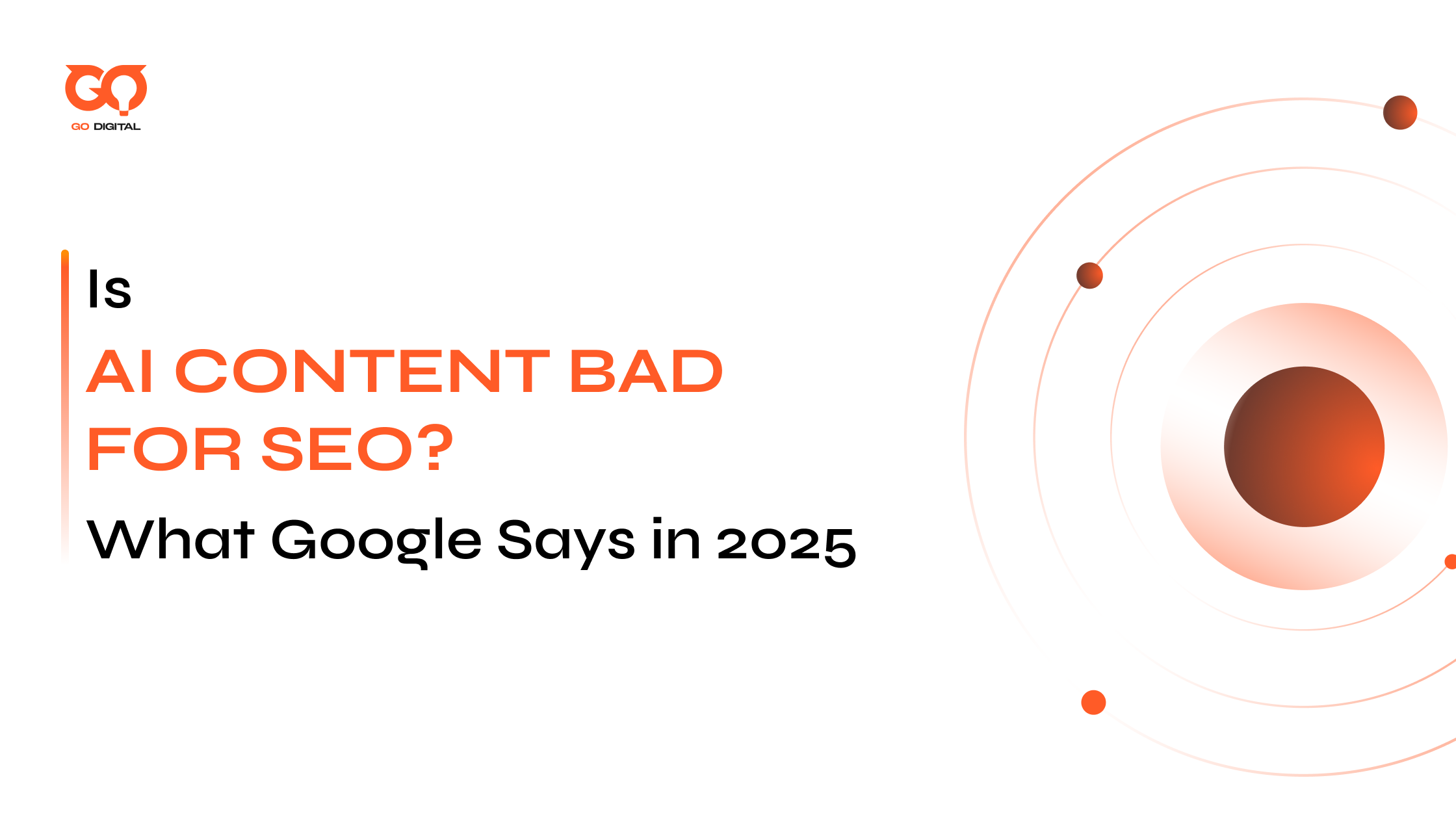AI is flooding the content world — fast, cheap, and unapologetically soulless. So the real question isn’t “Is AI content bad for SEO?” It’s: Do you know how to use AI without shooting your rankings in the foot?
Let’s get one thing straight: AI isn’t the enemy. But low-effort, outdated, or robotic content absolutely is. Whether written by a person or a machine, if your content lacks relevance and depth, it’s SEO junk food.
This article goes beyond the usual hand-wringing and algorithm worship. You’ll learn:
-
How AI can actually strengthen your SEO — when used with intent
-
The most common ways AI content hurts your visibility (yes, it happens often)
-
What Google really cares about in 2025 — and how to align with it
If your idea of “AI content strategy” is pasting ChatGPT output straight into WordPress, it’s time for an upgrade. This guide will help you do AI content the smart way — not the lazy way.
What Is AI Content? The Impact of AI on SEO
AI content is transforming digital marketing — from blog posts to social media copy, AI tools use natural language processing and machine learning to create content in seconds. It’s like having a supercharged assistant that helps you craft SEO-friendly material on demand.
In 2023, 84% of marketers said AI tools improve how accurately content aligns with search intent. The result? Faster, smarter content creation that meets SEO needs without the usual struggle.
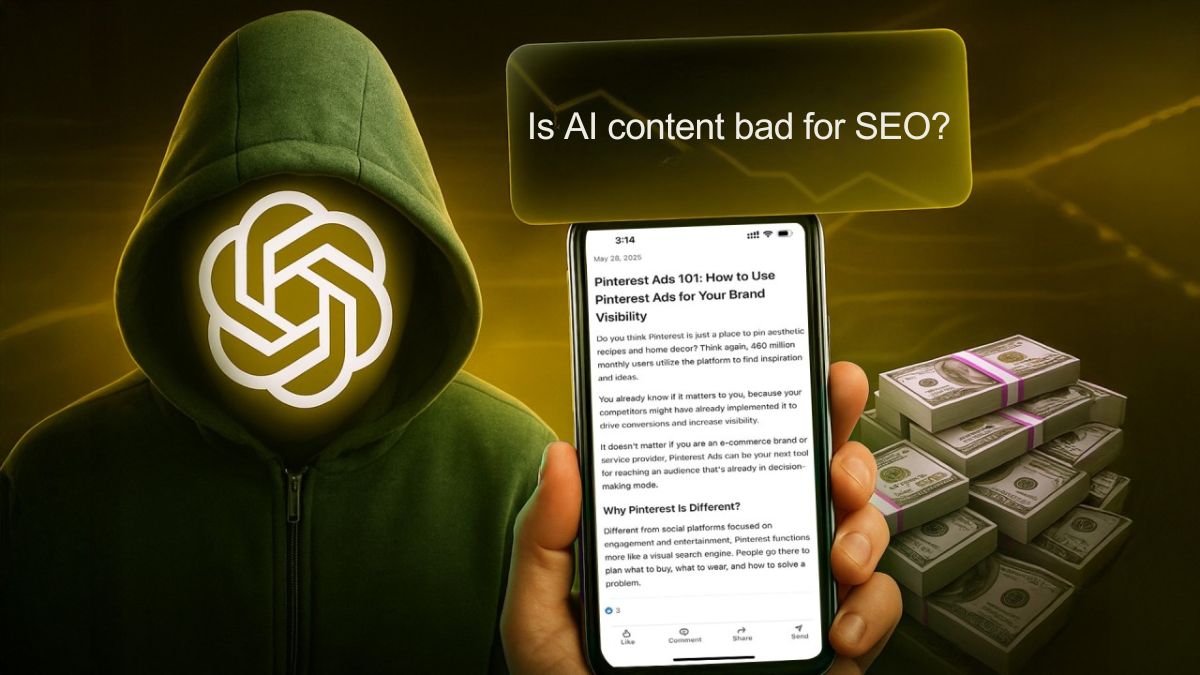
AI can generate text based on prompts or data
Is AI Content Bad For SEO? Benefits of AI Content for SEO
While concerns about AI-generated content are valid, it also offers several notable benefits that can enhance SEO efforts when applied correctly.

Is AI content bad for SEO? Let’s explore some benefits of AI content
1. Faster Content Production
AI tools like ChatGPT, Deepseek, and Gemini create usable content in minutes — a game-changer for teams racing against deadlines. According to SEOPROFY, 70% of businesses say ChatGPT has helped them produce content faster, streamlining workflows.
2. Consistent Structure and Messaging
AI excels at maintaining a consistent tone and structure across large content volumes. This is a huge advantage for brands that need uniformity in their messaging.
3. Smarter Keyword Research and Ideation
AI isn’t just about writing; it helps SEO teams by analyzing SERPs, suggesting relevant keywords, and spotting content gaps. This keeps your content ahead of search trends.
4. Rapid Content Updates
With its ability to process vast amounts of data, AI helps refresh outdated content and pivot quickly as market trends evolve. According to SEO.com, 65% of businesses saw a noticeable boost in SEO performance after using AI tools, with 52% saying it improved productivity.
Risks and Limitations of AI Content for SEO
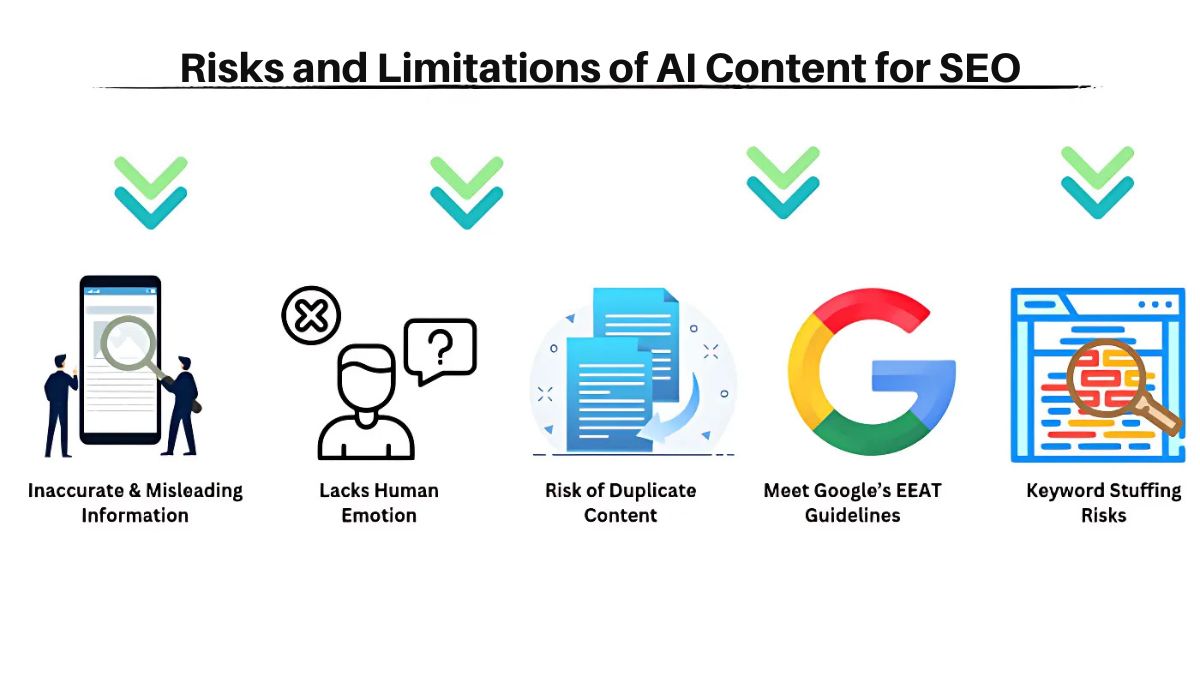
Be careful when using AI to write content
While AI content offers notable advantages, it also comes with limitations that must be carefully managed to avoid SEO penalties and maintain a high-quality user experience.
1. Lack of Human Emotion and Creativity
AI-generated text can feel robotic, missing the emotional depth and unique storytelling that humans bring. Without a personal touch, content can come off as flat and unengaging, leading to lower time on page and a negative SEO impact.
2. Risk of Duplication and Low Uniqueness
AI tools often pull from existing web data, increasing the risk of duplicate content. Without human oversight, you may end up with pages that are too similar to competitors, diluting your brand’s uniqueness and hurting your SEO.
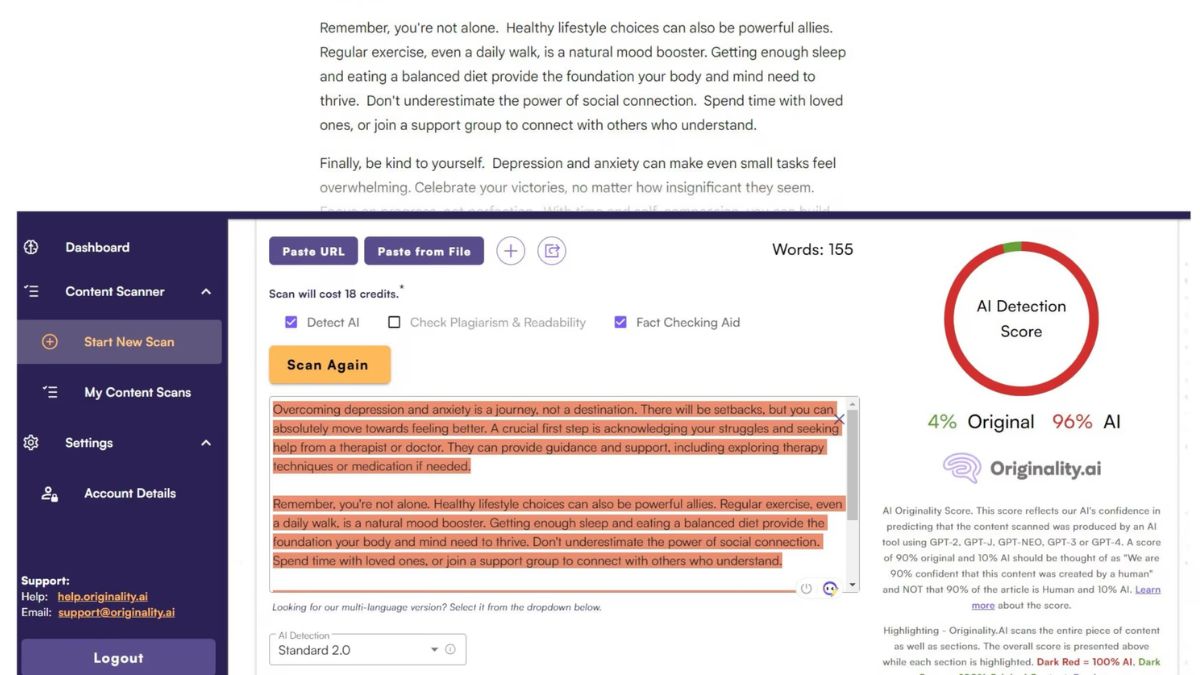
A high AI score suggests the content lacks uniqueness, which may negatively affect search engine rankings and brand reputation
3. Outdated or Inaccurate Information
AI may pull from outdated or unreliable sources, especially in fast-changing industries. This means your content could be inaccurate, requiring regular fact-checking to maintain credibility.
4. Violation of Google’s Guidelines
AI content must align with Google’s standards. If it’s spammy or lacks real value for users, it can trigger penalties. In fact, 65% of SEO professionals are concerned about AI’s quality and authenticity — poor execution can do more harm than good.
What Does Google Say About AI Content?
Google doesn’t ban AI content — it’s all about quality. Whether content is AI-generated or human-written, Google rewards original, helpful content that meets E-E-A-T (Expertise, Experience, Authoritativeness, and Trustworthiness).
AI can be a useful tool for creating content, but if it’s used just to manipulate rankings, it violates Google’s spam policies. Google’s SpamBrain system detects and penalizes such practices.
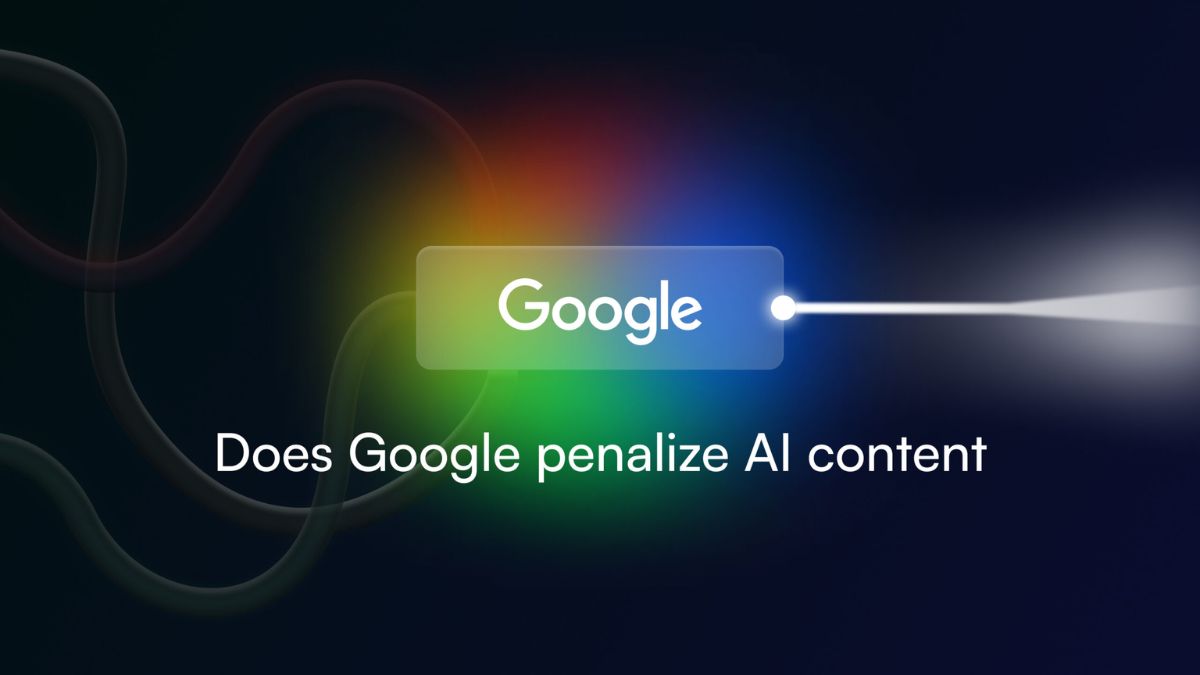
Always follow Google’s rules to stay safe and ensure your content supports long-term SEO success
According to SEO.com, 52% of the sources featured in Google’s AI Overviews already rank in the top 10 search results. This shows that high-quality content, regardless of whether it’s written by humans or machines, still delivers the best results.
Bottom line: AI-generated content is fine as long as it’s valuable, relevant, and created for users, not just to rank.
How to Implement AI Content to Optimize SEO
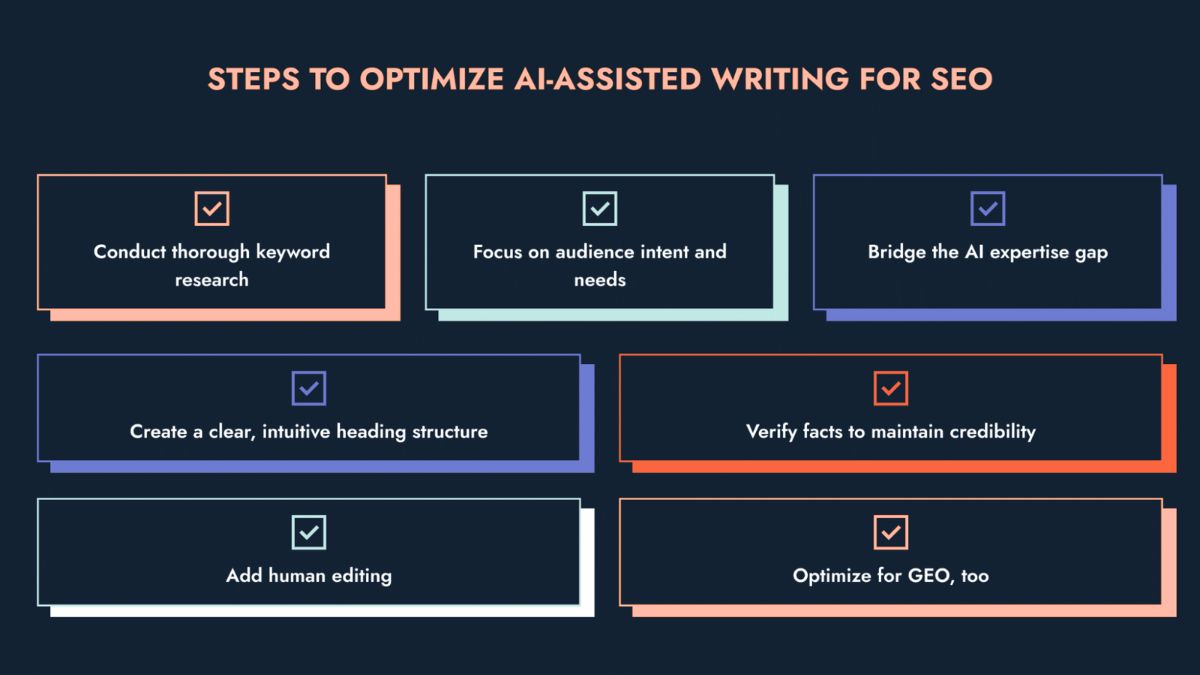
Understand the steps to optimize AI content for best results
To make the most of AI tools while avoiding pitfalls, SEO teams should follow a hybrid approach:
1. Don’t publish without reviewed content
While AI can produce content at impressive speed, it often lacks the accuracy, clarity, and brand alignment required for effective SEO. To ensure high-quality output, every piece of AI-written content should be thoroughly reviewed and edited by a human. Key areas to focus on include:
- Verifying facts and data for accuracy
- Ensuring consistency in tone and brand voice
- Removing repetitive, unnatural, or awkward phrasing
- Aligning content with Google’s E-E-A-T (Experience, Expertise, Authoritativeness, and Trustworthiness) standards.
2. Add Human Insights and Real Examples
Bring in your own experience, case studies, or client stories to personalize content. or example:
- Add case studies from past campaigns
- Mention client stories or user feedback
- Include specific industry examples that AI wouldn’t know
This approach brings authenticity and builds credibility – both key to meeting Google’s E-E-A-T standards.
3. Use AI as a Tool, Not a Replacement
Treat AI as an assistant – helpful for brainstorming and structuring, but not a complete replacement for human judgment.
4. Monitor Performance Regularly
Use analytics to track engagement, rankings, and bounce rates. Regularly update AI-generated content to reflect the latest data and trends. You need to use tools like Google Analytics, Google Search Console, and SEMrush to measure:
- Click-through rates (CTR)
- Average time on page
- Bounce rate
- Ranking changes for key terms
The Future of AI Content and SEO: Trends to Watch
As AI continues to evolve, so too will its role in SEO strategy. Innovations like Google’s AI Overviews and the emerging field of Generative Engine Optimization (GEO) will likely reshape how users interact with search results.
According to projections, 90 million Americans are expected to use AI-powered search tools by 2027 (source). To stay ahead, marketers must adapt by integrating AI thoughtfully, focusing on user intent, and continuously refining content strategies.
| Related reading: How to Tell If Your SEO Company Is Working? 7 Clear Signs |
Final Thoughts
So, is AI content bad for SEO? The answer depends on how you use it. AI can speed up your workflow and boost SEO performance, but only if the content is high-quality, relevant, and edited with care.
In the end, what matters most to Google is how useful your content is – regardless of whether it’s written by AI or a human. If you want to use AI without hurting your SEO, Golden Owl Digital is here to help. We blend smart technology with human insight to create content that not only ranks but truly connects with your audience.

Jaden is an SEO Specialist at Golden Owl Digital. He helps brands rank higher with technical SEO and content that resonates

